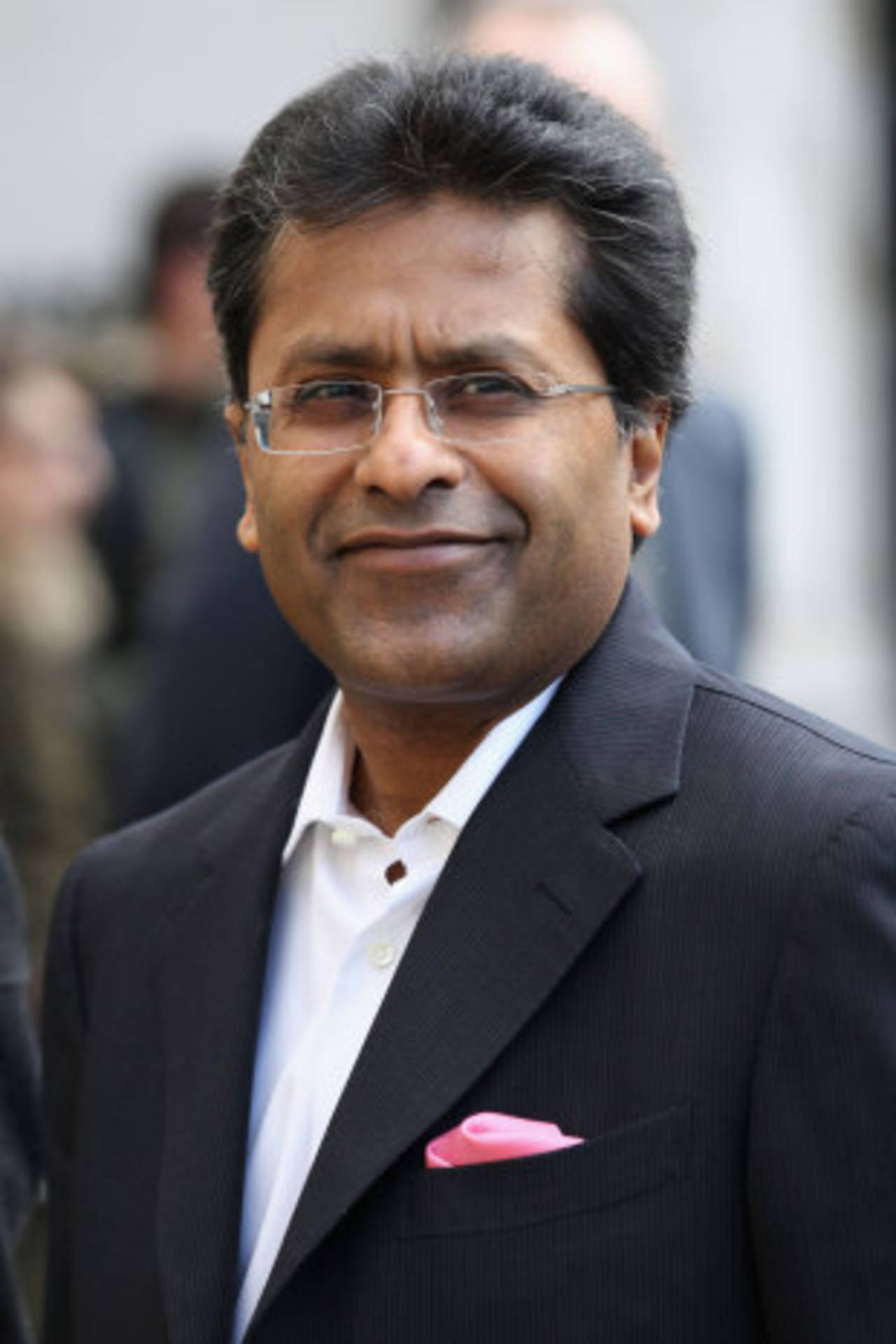Modi involved in rebel county plans - BCCI
The alleged plans to launch a rebel Twenty20 league in England have been brought back to the fore during Lalit Modi's disciplinary hearing
David Hopps
06-Sep-2013

Lalit Modi has said that discussions were never about forming rebel league in England • Getty Images
The furious stand-off between the ECB chairman Giles Clarke, Lalit Modi, the former IPL commissioner, and the global sports and media business IMG, over alleged talks about a rebel Twenty20 league in England has been stripped bare in the report of a BCCI disciplinary committee.
Modi has been found guilty on eight charges of "various acts of indiscipline and misconduct" during his time in charge of IPL and he is expected to face recommendations of a life ban at a special general meeting of the BCCI on September 25.
But it is previously unseen details of alleged emails between Modi, IMG and key administrators in English county cricket which will be read closely by those interested in the feverish debate which sounded three years ago about the future of Twenty20 in England.
Clarke's allegations that Modi and IMG were involved in embryonic plans to launch a rebel T20 league in England were denied by both parties and the protracted legal claims and counter-claims that followed were eventually settled out of court.
Any introduction of a T20 franchise operation in England - which became known as Project Victoria - would have transformed professional cricket in England and left the game facing the most unpredictable period in its history.
Instead, the ECB, with Clarke at the forefront, has reasserted its rule over professional cricket in England and has confirmed plans next season for a revamped T20 tournament based on all 18 first-class counties to be played over most of the summer, largely on Friday nights.
The league has been presented as a solution which takes regard of England's traditions, weather and potential, but critics argue it as unambitious and fear that it will not attract overseas players because it is played over such a prolonged period.
The BCCI disciplinary report outlines an alleged plan "to create a rebel 20:20 league in England without the involvement of English Cricket Board by targeting weak and cash starved counties."
For the first time, a series of emails between administrators and IMG representatives have entered the public domain, with the BCCI disciplinary committee concluding: "It states that membership has been obtained of counties that are financially vulnerable and potential acquisition targets. The said counties are Kent, Essex, Middlesex, Northants, Derbyshire and Leicestershire as potential acquisition targets."
Under Project Victoria, according to further emails, the 18 counties could be amalgamated for the purposes of T20 into eight franchises. Scotland would also be considered as, according to one email exchange, "there were a lot of Indians in Glasgow".
The BCCI disciplinary committee concluded: "We are convinced that by being part of a plan to create a new T-20 League in England by targeting weak counties, which Mr Modi knew was outside the ECB's knowledge and umbrella, Mr Modi endangered the harmony between the BCCI and the ECB. We hold that the charge is proved against Mr Modi on this count."
Clarke protested to the Indian board once he learned of a meeting in Mumbai between Modi and a party of county chief executives representing four Test match counties: Yorkshire, Lancashire, Warwickshire and Nottinghamshire.
Modi's written submission stated that county representatives "were all frustrated about the lack of vision at the ECB and they wanted some form of ideas to stimulate discussion back home. However, no deal was offered or proposed. They simply talked about ideas and the respondent told them what was obvious: there was an opportunity in England to create an EPL."
Many county representatives involved, however tentatively, in confidential discussions about the future of Twenty20 in England have since moved on or have had to work hard to repair relationships with the higher echelons of the ECB.
David Hopps is the UK editor of ESPNcricinfo